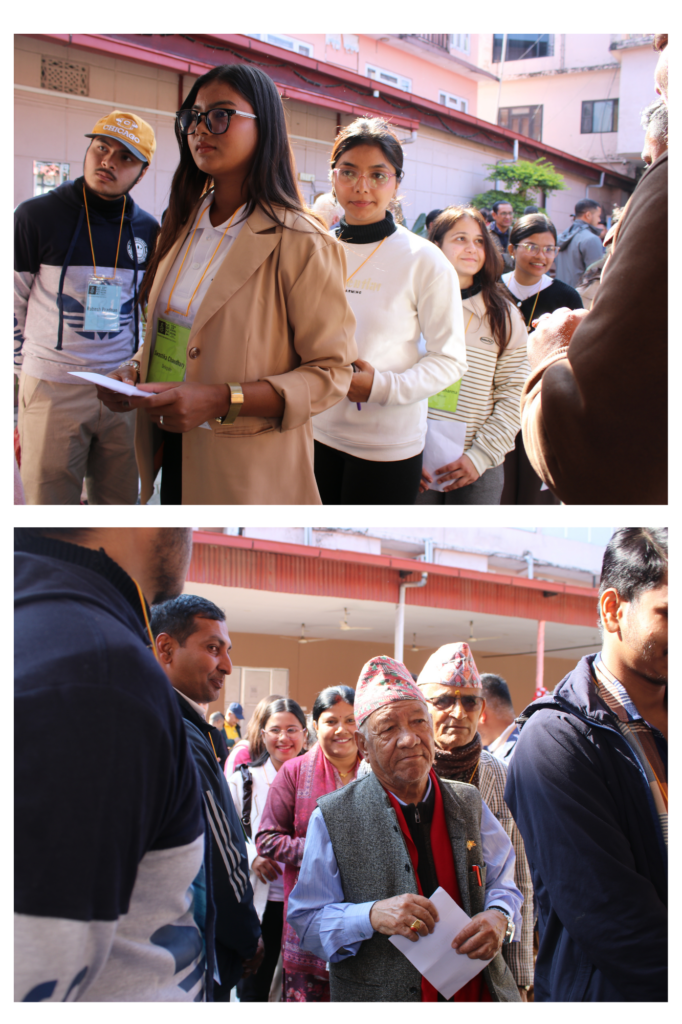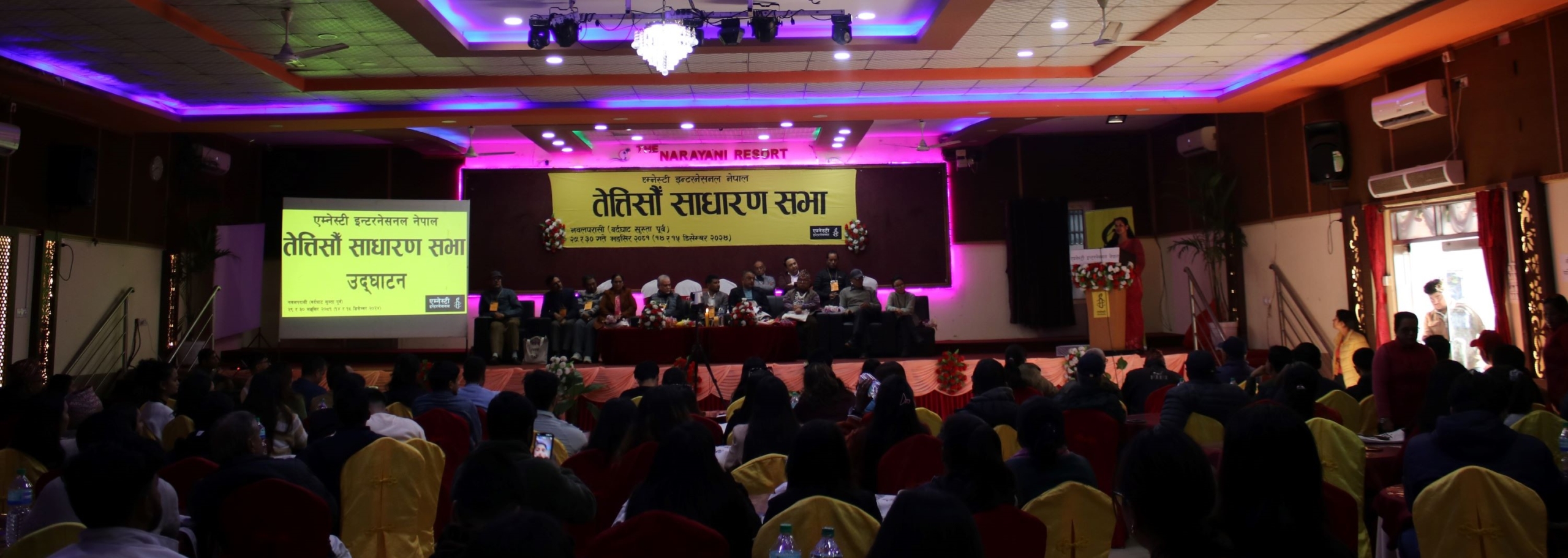Amnesty International Nepal (AI Nepal) successfully concluded its 33rd Annual General Meeting (AGM) on 15 December 2024, in Nawalparasi (Bardaghat Susta Purba). The two-day event, held on December 14 and 15, marked a significant milestone for the organisation by outlining the human rights action plan for 2025 and electing new leadership to guide its mission forward.
The AGM approved several critical agenda items, including the statutory reports for the fiscal year 2080/81, the annual human rights action plan and budget for 2025, and the appointment of auditors for fiscal year 2081/82. A new National Board and statutory committees were also elected, marking a fresh chapter in AI Nepal’s governance.
Over 150 participants attended the meeting, including 100 voting delegates representing Amnesty Nepal’s groups, youth networks, and supporter members from across the country. Board and Appeal Committee officials, staff, former AI Nepal chairpersons, volunteers, and observers were also present.
One of the highlights of the AGM’s inaugural session was the inaugural address by Mr. Gagan Kumar Thapa, Member of the House of Representatives, former Minister of Health, and General Secretary of Nepali Congress. In his address, Thapa emphasised Nepal’s unique position as a beacon of democracy in South Asia.
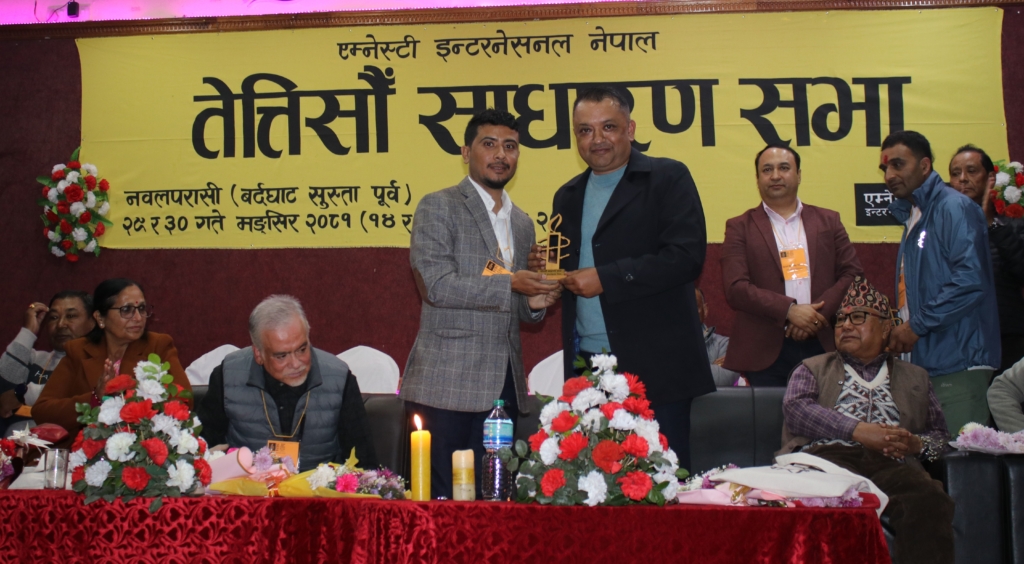
“In the South Asian context, Nepal stands out as the last remaining democracy that has upheld the principles of secularism while fostering respect and tolerance for its diverse cultural and religious differences. This unique position places a profound responsibility on us to safeguard these values. Together, we must strive to strengthen our communities, foster mutual understanding, and build a society where human rights are not only protected but celebrated,” said Thapa.
Reflecting on his past as a student protester during Nepal’s pro-democracy movement, he also expressed deep gratitude toward Amnesty International. “I will always be grateful to Amnesty International for protecting me and declaring me a ‘prisoner of conscience’ when I was detained during Nepal’s pro-democracy movement. Amnesty’s support was as warm as a mother’s embrace, and I will always cherish that,” he added, emphasising the enduring importance of global solidarity in the fight for human rights.
At the inauguration, Suman Adhikari, founder of the Conflict Victims Common Platform, also delivered a powerful message urging Amnesty Nepal members to proactively hold the government accountable for addressing human rights violations committed during Nepal’s conflict era, highlighting the urgent need for action.
“The transitional justice process is at a critical juncture. As Amnesty members, we must ensure that justice for victims is not delayed or denied,” Adhikari stressed.
The AGM’s opening session was graced by several other prominent guests, including former AI Nepal chairpersons Charan Prasai, Raju Sarkar, Dhurba Karki, Hem Kumar Khadka, Surya Bahadur Adhikari, Rajan Prasad Kuinkel, and Bikram Dhukuchu. Other guests included Basanta Parajuli, the newly elected Chairperson of the Federation of Nepali Journalists, Chitwan; Baikuntha Prasad Aryal, Coordinator of Amnesty Nepal’s Local Group 40 based in Nawalparasi (East of Susta); Kamala Naral, Police Inspector and Head of Gaindakot Area Police Office; Madan Bhakta Adhikari, Mayor of Gaindakot Municipality; Pasang Sherpa, Member of the International Nomination Committee of Amnesty International; and Arun Pokharel, Chief District Officer of Nawalparasi (East of Susta).
A video message from Nutan Thapaliya, the founder of AI Nepal, provided a heartfelt reminder of the organisation’s legacy and its unwavering commitment to human rights in Nepal. Thapaliya shared reflections on the long journey AI Nepal has undertaken to strengthen its advocacy, rallying members to remain steadfast in their mission.
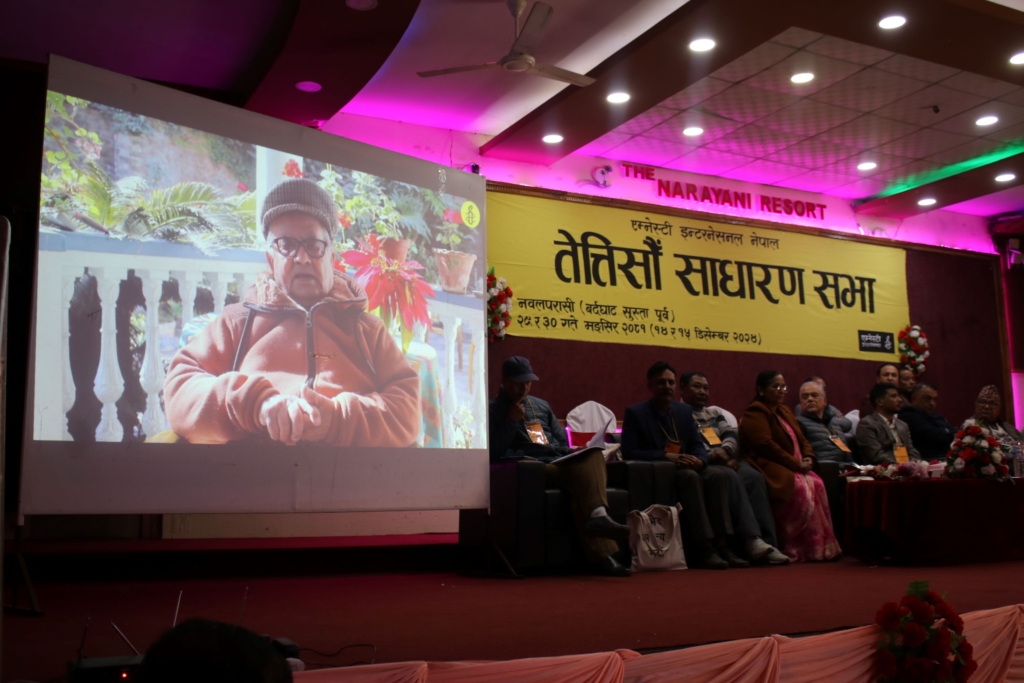
After the opening session, delegates and all participants participated in a public action that demanded an immediate end to the ongoing genocide in Gaza. The action highlighted Amnesty’s call for justice and peace amidst Israel’s unleashing of hell and destruction on Palestinians in Gaza brazenly, continuously, and with total impunity, thereby pushing Gaza’s population to the brink of collapse since the deadly Hamas-led attacks in southern Israel on 7 October 2023.
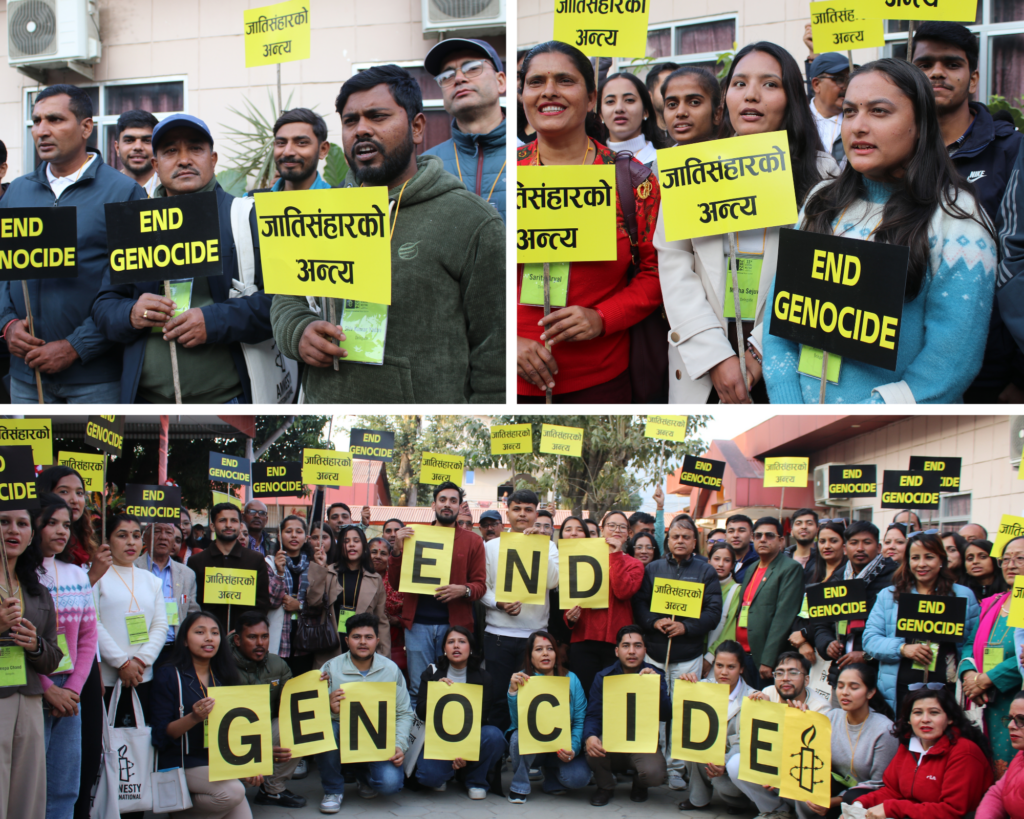
Following the public action, the closed session began. The session first approved the AGM’s agenda and the appointment of tellers and rapporteurs. It then went on to approve the Annual Program Report for 2080/81, the 2025 Action Plan and Budget, the National Board’s Annual Report, and the Financial and Audit Report for 2080/81. The day concluded with discussions on auditor appointments and an election process briefing.
On 15 December, the closed session resumed after breakfast for the election proceedings. Votes were cast and counted. Mr Bipin Budhathoki was re-elected as the Chairperson for a second term unopposed. Mr. Hom Bahadur Adhikari was elected as the Treasurer. Other candidates elected in the Board roles were Mr Keshab Pokherel, Ms Sachita Kuikel Pooja Thapa, Alisha Mahat, Meena Thapa, Mausam Karki, Baikuntha Prasad Aryal, Lokendra Singh and Suman Kumar. The Board later decided to elect Mr Keshab Pokharel, Ms Shachita Kuikel and Ms Pooja Thapa as Vice Chair, General Secretary and Deputy General Secretary respectively.
Likewise, Mr Kabindra Nepal was elected unopposed as the member of Preparatory Committee. Roshan Bajgai, Kalpana Khadka and April Adhikari were elected unopposed respectively as the Coordinator and members of the Nominations Committee. Devendra Kumar Sejwal, Niki Karn and Sanjog Pokhrel were also elected unopposed respectively as the Coordinator and members of the Appeal Committee.
All elected representatives will serve a three-year term.
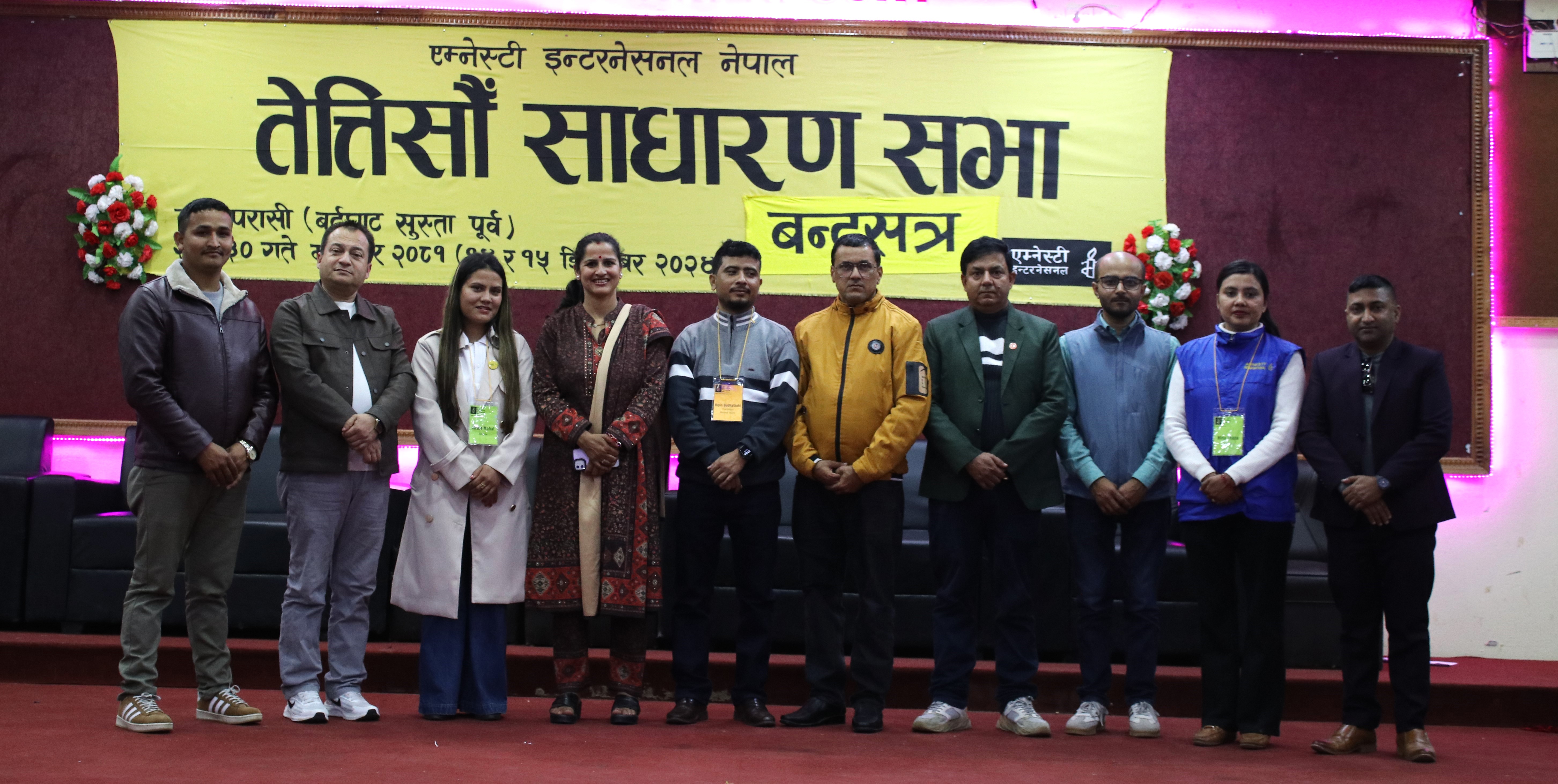
Director of Amnesty International Nepal, Nirajan Thapaliya, emphasised the democratic nature of the election process and the inclusivity of the new leadership. “Through a transparent and democratic process, Amnesty Nepal has elected a new leadership team that embodies the diversity of our movement, with strong representation from youth and women, and marginalised communities,” said Thapaliya. “This inclusivity reflects our commitment to ensuring that our leadership mirrors the principles of equality and representation that we strive to uphold in our human rights work.”
Wrapping up the AGM, Charan Prasai, a long-time human rights defender and former Chairperson of Amnesty Nepal, congratulated the newly elected board and reminded members of the challenges ahead.
“We do not have the liberty to slow down in a world that is increasingly becoming disrespectful of human rights,” Prasai said, urging members to stay vigilant and proactive.
Newly elected Chairperson Bipin Budhathoki shared his vision for the organisation’s future. “The continuity of Amnesty Nepal’s governance reform process and a clear, strong, and effective human rights movement through new strategic goals will be the mandate for us. We will work to spread Amnesty’s presence to the local level while ensuring long-term impact and upholding the dignity of all members,” Budhathoki said, emphasising the need to keep the spirit of Amnesty’s movement alive.
On Monday, a press conference was organised with local reporters of the region, who were introduced to the new National Board and briefed on the outcomes of the AGM. The AGM concluded with a renewed commitment to defending human rights, fostering accountability, and expanding Amnesty Nepal’s reach and impact in the years to come.
